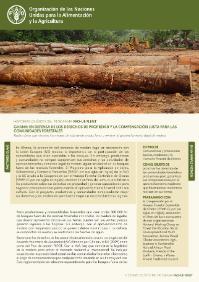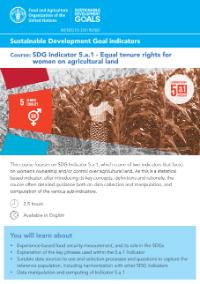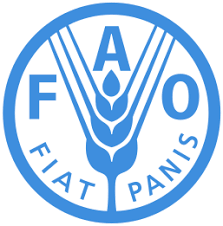Focal point
Location
The Food and Agriculture Organization of the United Nations leads international efforts to defeat hunger. Serving both developed and developing countries, FAO acts as a neutral forum where all nations meet as equals to negotiate agreements and debate policy. FAO is also a source of knowledge and information. We help developing countries and countries in transition modernize and improve agriculture, forestry and fisheries practices and ensure good nutrition for all. Since our founding in 1945, we have focused special attention on developing rural areas, home to 70 percent of the world's poor and hungry people.
Members:
Resources
Displaying 606 - 610 of 5074Ghana: en defensa de los derechos de propiedad y la compensación justa para las comunidades forestales
Ghana’s work to promote the legal timber trade, in partnership with the European Union (EU), strongly emphasizes involving local communities who live in or near forests. Yet many farmers and communities don’t understand their rights, which means that illegal activity by loggers has gone unchecked in Ghana’s off-reserve forests.
SDG Indicator 5.a.1 - Equal tenure rights for women on agricultural land
FAO eLearning center - list of courses
this is one of about 70 fact sheets (already published) contained in athe FAO eLearning center folderThe VGGT as a Tool for Improving Access to Land and Responsible Management of Natural Resources
We must agree as a nation, that several mistakes have been made in our land deals in recent years. We were stampeding in the wrong direction without adequately consulting beneficiaries i.e. those who are directly affected, those individuals and groups who suffer if anything goes wrong. They are also seen but not heard i.e. the voiceless and marginalized living in the rural areas.
VGGT: Pilot project on the implementation of the OECD-FAO Guidance for Responsible Agricultural Supply Chains
To support the practical application of the OECD-FAO Guidance, in early 2018 the OECD and FAO launched an implementation pilot with over thirty companies and industry initiatives. The first stage of the pilot was a baseline survey to assess how companies and industry initiatives are implementing the OECD-FAO Guidance and other related international standards. This report presents the findings of the baseline assessment.











